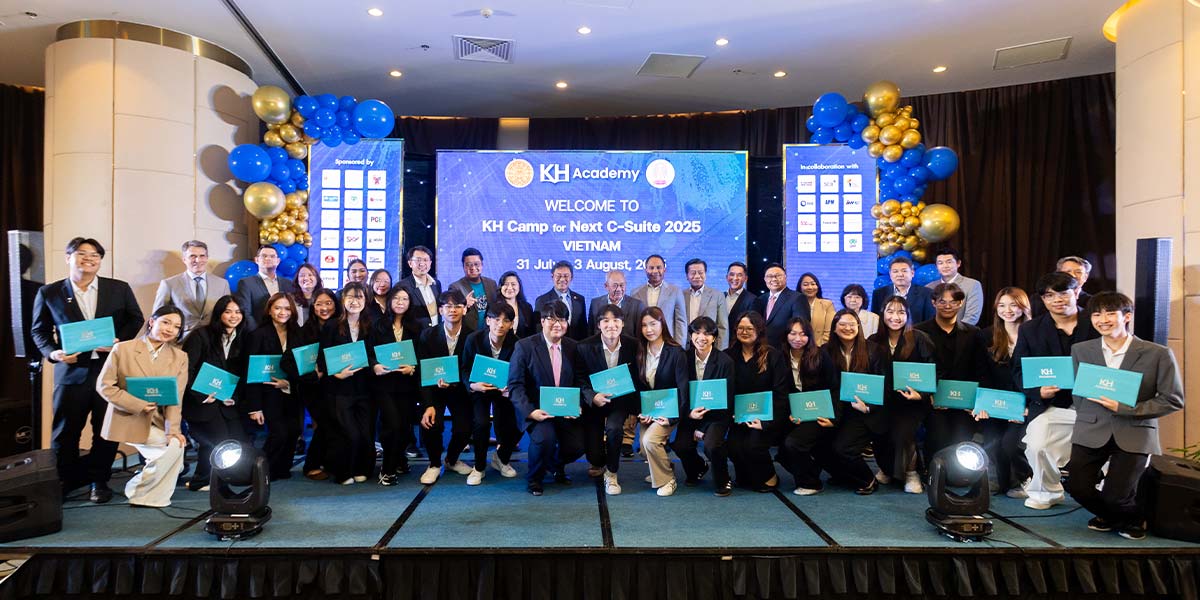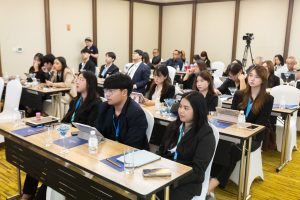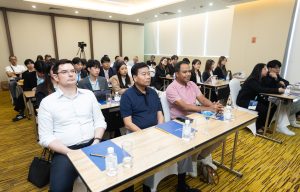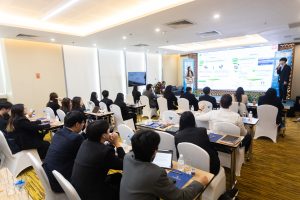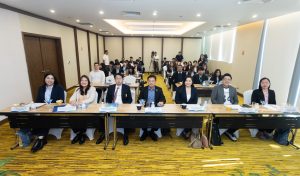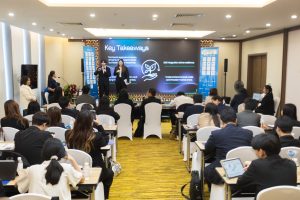KH Academy’s premier “KH Camp for Next C-Suite” program offered an immersive learning experience for emerging young Thai leaders, taking university students on an exclusive behind-the-scenes tour of top Thai enterprises in Vietnam. The initiative aims to develop the next wave of C-suite executives by bridging academic knowledge with practical executive-level challenges in a regional context.
Designed to foster cross-border leadership skills, the program integrates partnerships between prominent educational institutions and industry players. Participants gain invaluable exposure through international site visits, hands-on internships, and direct interaction with senior management, strengthening their strategic thinking, management acumen, and ESG (environmental, social, governance) literacy—core competencies for tomorrow’s executive suite.
From July 31 to August 3, a cohort of 21 students from Chulalongkorn and Thammasat University, accompanied by faculty, Thai media representatives, and KH Academy staff, visited key operational sites in Vietnam. The itinerary included tours at Srinanaporn Marketing Pcl’s (SET: SNNP) manufacturing facility and B.Grimm Power Pcl’s (SET: BGRIM) solar energy farm. The program culminated with student-led presentations, where participants demonstrated analytical prowess and leadership potential before faculty professors on the final day.
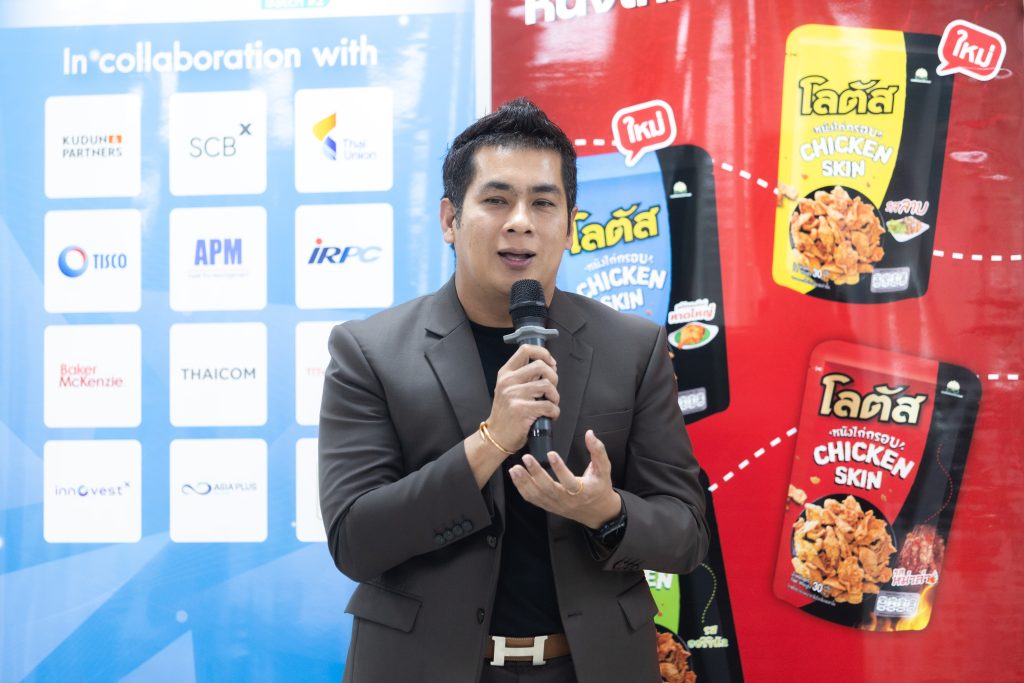
At SNNP’s Binh Duong factory, the delegation was received by Chief Financial Officer Mr. Supachoke Bumrungpun. The site, which produces flagship snacks under the Bento, Lotus, and Jele Beauty brands, served as a practical case study in operational efficiency and scaling strategy. During an open-discussion session, Mr. Supachoke detailed the company’s Vietnam operations, highlighting surging domestic demand and best-in-class manufacturing performance.
Addressing queries on regional expansion and profitability trade-offs, the CFO offered insights into strategic decision-making at the C-suite level. He underscored the importance of measured growth and the need to balance market penetration with strategic plan as well as long-term sustainability. Supachoke also emphasized SNNP’s ongoing commitment to ESG-driven practices—ranging from community engagement to employee wellness, including sports sponsorships—as fundamental principles that guide the leadership ethos of the company.
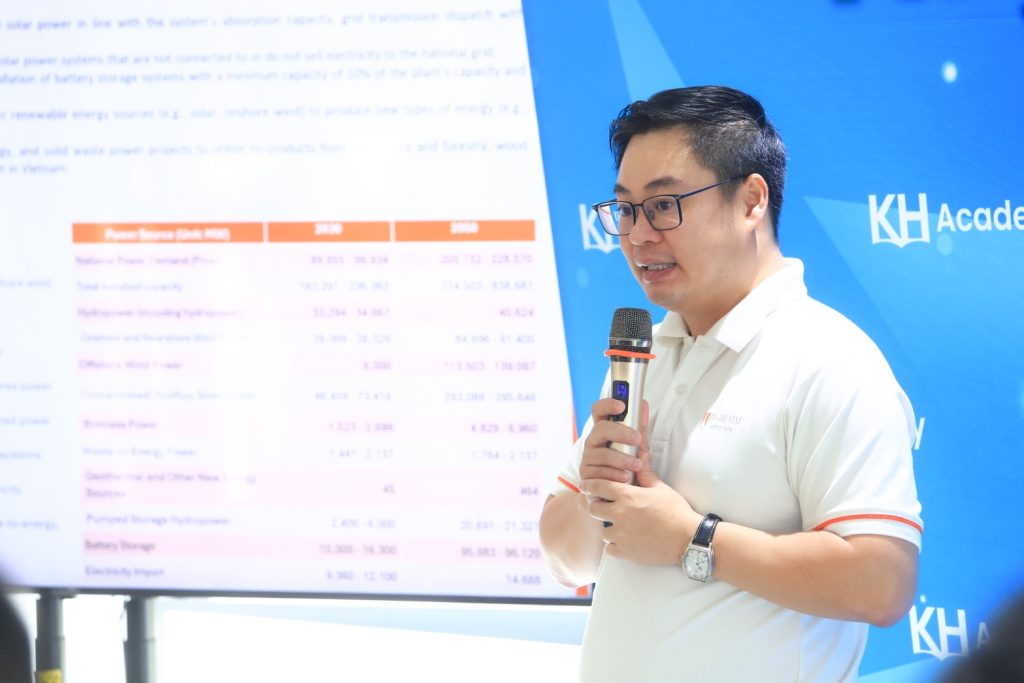
The visit to BGRIM’s solar farm proved to be a highlight of the program, offering participants—especially the students—a rare opportunity to step inside the control room for a live demonstration of solar farm operations.
At the Phu Yen headquarters, Mr. Nguyen Anh Tuan, CEO of B.Grimm Power (Vietnam), warmly welcomed the delegation and provided an in-depth briefing on the company’s operations in Vietnam. He reiterated BGRIM’s ambitious vision to expand both domestically and internationally in pursuit of zero-carbon, sustainable growth. By 2030, the company aims to achieve net-zero emissions, with renewable energy contributing more than 50% of portfolio revenue and total installed capacity reaching 10,000 MW.
Beyond its investment in the Phu Yen solar farm, BGRIM has embedded ESG principles into its operations, working to reduce carbon emissions, promote renewable energy adoption, and uplift local communities. The company strives to set a benchmark for investment cooperation in Vietnam, ensuring that economic growth is matched by environmental stewardship and social responsibility.
Mr. Tuan also commended KH Academy’s C-Suite Program, noting its role in fostering valuable insights and encouraging cross-border collaboration among future business leaders. He expressed his appreciation for the program’s professional organization, the stimulating discussions, and the opportunity to engage with like-minded peers. The visit, he said, reinforced BGRIM’s confidence in building long-term partnerships in Vietnam.
On the final day, students from Chulalongkorn and Thammasat Universities were paired up to deliver C-suite-level strategic presentations based on scenarios assigned by a panel of professors from both institutions. The presentations showcased not only analytical depth and leadership acumen but also a clear integration of ESG considerations into proposed strategies—reflecting the program’s success in nurturing the next generation of responsible executives.
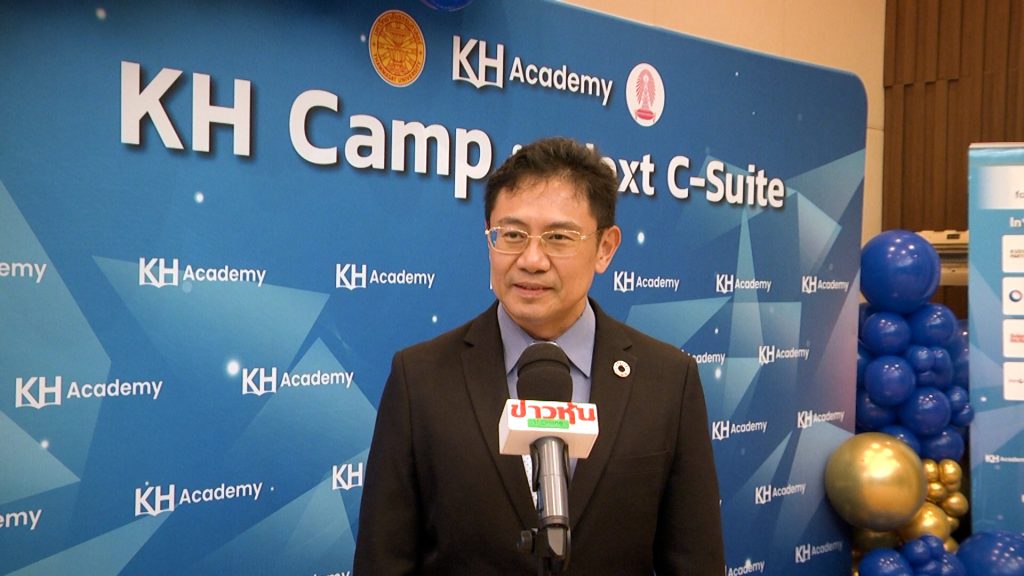
Dr. Sanya Mitaim, Dean of Electrical Engineering Faculty at Thammasat University, representing both Chulalongkorn and Thammasat Universities, expressed gratitude to KH Academy for providing a valuable opportunity for their students. This programme offers practical experience, including internships and observation, allowing students to simulate the role of senior executives in large corporations. The aim is to help students identify their skill gaps and understand what further learning and training are needed for their future career success.
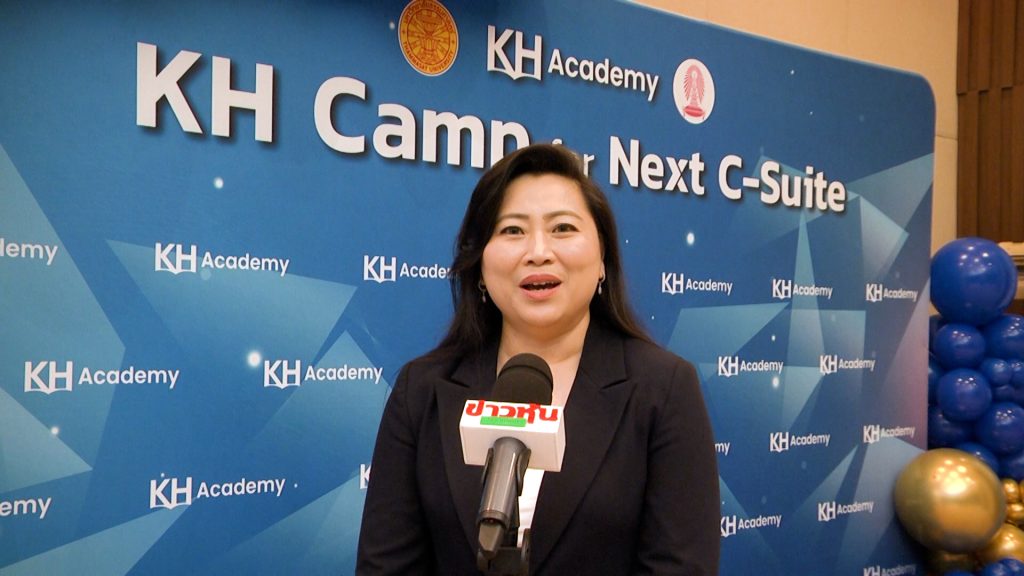
Asst.Prof. Dr. Orapan Yolrabil, Associate Dean for Academic Affairs and Alliance Network at Thammasat University, stated that this year marks the second iteration of the KH Camp for the Next C-Suite, an initiative celebrating innovative collaboration. This programme fosters a tangible partnership between educational institutions and various organisations and companies, facilitated by KH Academy. It provides students with a unique experience, preparing them for internships at leading companies and offering valuable insights from case analyses guided by academics from multiple institutions and faculties.
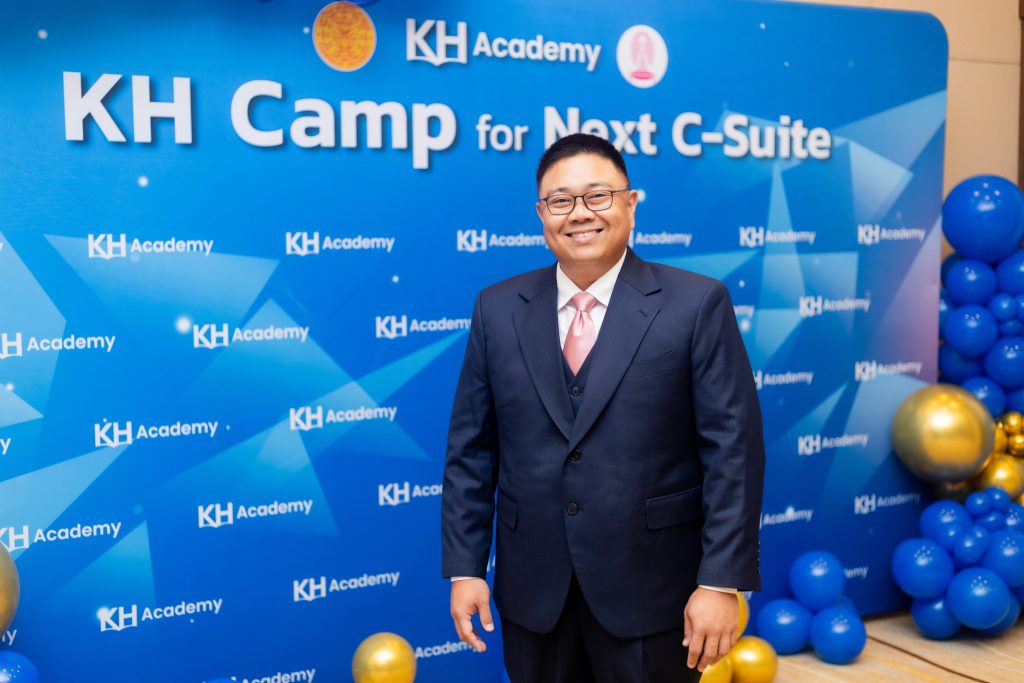
Mr. Burapha Sanguanwong, Founder of KH Academy, stated that KH Academy is dedicated to fostering sustainability across various sectors, from education and business to the national economy and family enterprises. Its core mission involves developing a high-quality new generation equipped with knowledge, skills, experience, vision, and strong logic. Students selected for programs like KH Camp for the Next C-Suite are carefully chosen for their potential, demonstrating remarkable effort, determination, and forward-thinking vision often unseen in prior generations.
The curriculum challenges participants with real-world scenarios, such as tackling U.S. countervailing duties, while strongly emphasising sustainability, with ESG being the globally accepted tool for achieving this. The Academy aims to enhance students’ understanding of applying theoretical knowledge to practical situations, thus bringing distinction back to their educational institutions. Moreover, it cultivates valuable connections among students from different universities, crucial for their future careers.
The future of the nation is seen to rest upon this capable new generation. Achieving long-term sustainability also requires mutual understanding between older and younger generations, where experience and new knowledge are respected and integrated.
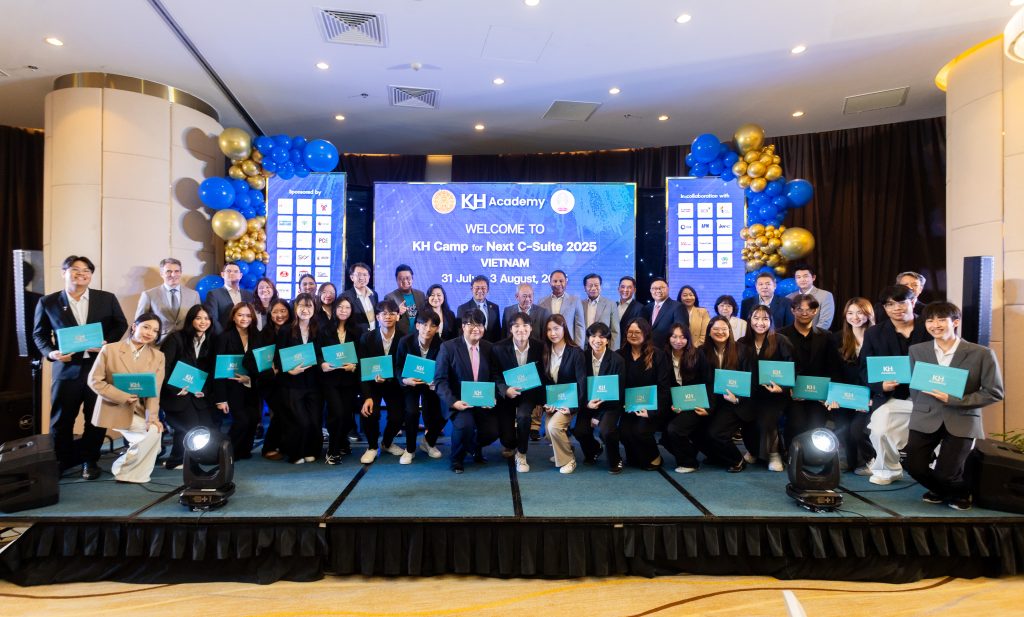
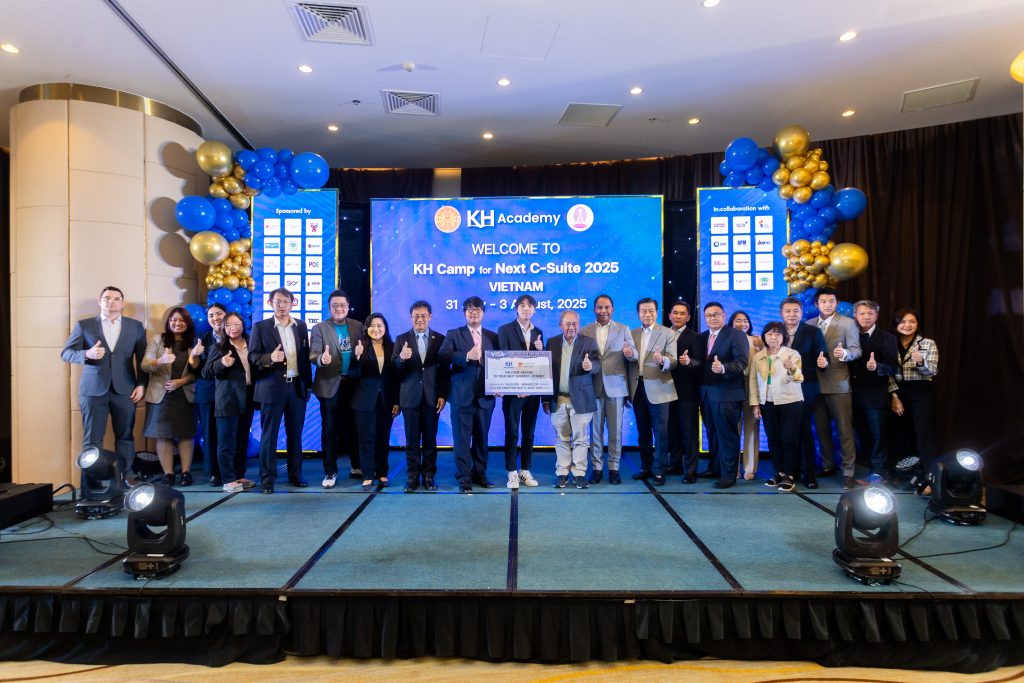
KH Academy was established to continue the mission of “Kaohoon Turakij” in nurturing young university students towards careers in finance and investment without any charges. The academy collaborates with private sector partners and supporters, including B.Grimm Power Public Company Limited (BGRIM), PrimeStreet Advisory (Thailand) Company Limited, BTS Group Holdings Public Company Limited (BTS), Charoen Pokphand Group Co., Ltd, Medeze Group Public Company Limited (MEDEZE), Krung Thai Bank Public Company Limited (KTB), Millennium Group Corporation (Asia) Public Company Limited (MGC), Petchsrivichai Enterprise Public Company Limited (PCE), CGS International Securities (Thailand) Company Limited (CGSI), Srinanaporn Marketing Public Company Limited (SNNP), SKY ICT Public Company Limited (SKY), Food Moments Public Company Limited (FM), TQM Insurance Broker Company Limited (TQM), TOA Paint (Thailand) Public Company Limited (TOA), Turnkey Communication Services Public Company Limited (TKC), Minor International Public Company Limited (MINT), G-Able Public Company Limited (GABLE), Master Style Public Company Limited (MASTER), and Ichitan Group Public Company Limited (ICHI).

